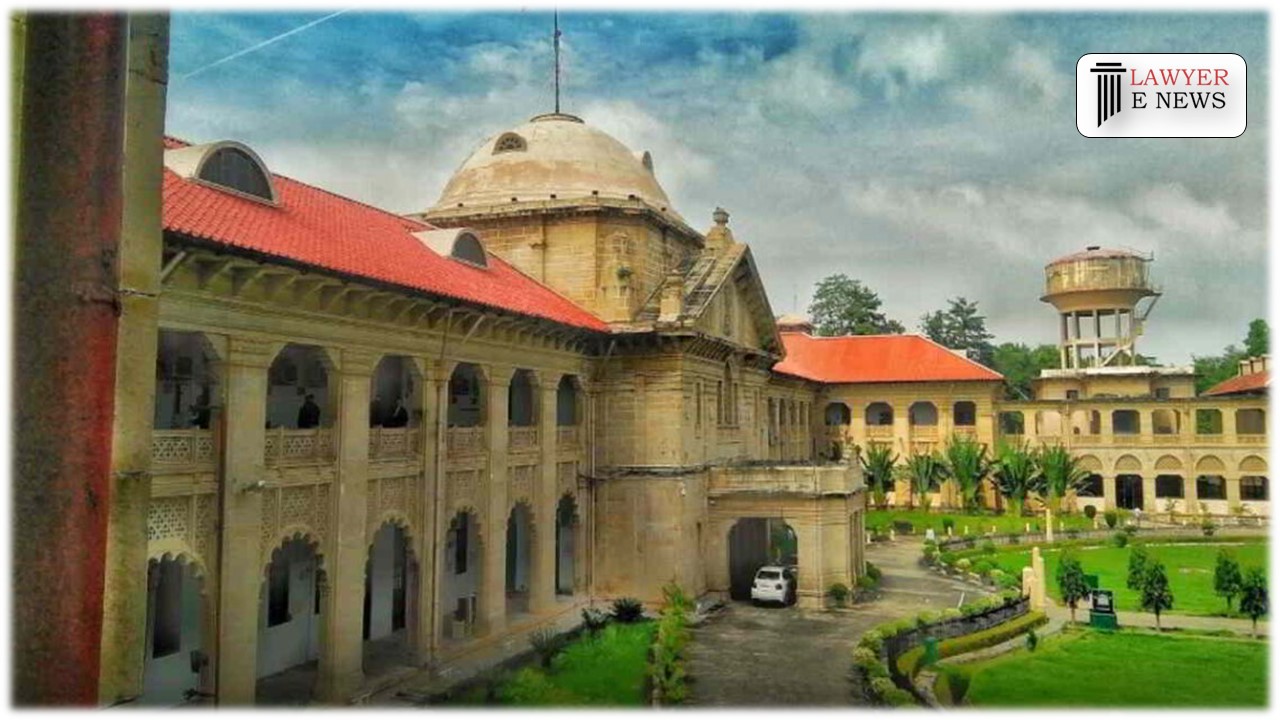-
by Admin
15 February 2026 5:35 AM



Chairperson of DRAT instructed to submit a preliminary report on allegations of misbehavior, nepotism, and procedural improprieties within four weeks.
In a significant ruling, the Allahabad High Court (Lucknow Bench) has directed a thorough inquiry into the conduct of the Presiding Officer of the Debt Recovery Tribunal (DRT) in Lucknow. The judgment, delivered by a bench comprising Hon'ble Mrs. Sangeeta Chandra and Hon'ble Shree Prakash Singh, mandates the Chairperson of the Debt Recovery Appellate Tribunal (DRAT) to scrutinize and report on allegations of misbehavior, nepotism, and procedural improprieties within four weeks. The Union Ministry of Finance is then required to take a reasoned decision based on the report.
The writ petition was filed by the Debt Recovery Tribunal Bar Association through its Secretary, Arvind Kumar Srivastava, seeking a detailed inquiry into the conduct of the DRT Presiding Officer. The Bar Association's allegations included claims of consistent misbehavior, nepotism, and arbitrary decision-making by the Presiding Officer, Shri A.H. Khan, leading to a strike by the Bar Association that significantly disrupted the Tribunal's functioning.
The Court emphasized the importance of maintaining transparency and accountability in judicial conduct. It noted previous petitions by private parties, which had raised similar concerns about the Presiding Officer. "Reasoned and transparent decision-making is crucial in judicial conduct inquiries," the Court observed, underscoring the need for a thorough examination of the allegations.
The Court acknowledged the detrimental impact of the strike by the Bar Association on the DRT's operations. The strike had led to a significant backlog of cases and hampered the delivery of justice. The Court directed the advocates to resume their work and cooperate with the judicial process, noting that subsequent orders led to the disposal of a substantial number of cases. "Continuous judicial functioning is vital for protecting the interests of litigants," the Court stated.
The judgment highlighted the role of the Central Government in addressing the grievances raised by the Bar Association. It directed the Chairperson, DRAT, to submit a preliminary report on the Presiding Officer’s conduct within four weeks and instructed the Central Government to make a reasoned decision based on this report within four weeks thereafter. The Court reinforced the statutory obligations under the Tribunal (Conditions of Service) Rules, 2021.
The Court extensively discussed the legal framework governing the inquiry into judicial conduct. It referred to Section 15(2) of the Recovery of Debts and Bankruptcy Act, 1993, and relevant rules under the DRT (Procedure for Investigation of Misbehavior or Incapacity of Presiding Officer) Rules, 2010, and Tribunal (Conditions of Service) Rules, 2021. The judgment emphasized that a thorough and unbiased inquiry is necessary to uphold the integrity of the judicial process.
Hon'ble Justice Sangeeta Chandra remarked, "The allegations of misbehavior and procedural improprieties warrant a detailed and impartial scrutiny to maintain the credibility of the judicial system." Justice Shree Prakash Singh added, "The continuous judicial functioning of the Tribunal is paramount, and any disruptions must be addressed promptly and effectively."
The Allahabad High Court's directive for a detailed inquiry into the conduct of the DRT Presiding Officer underscores the judiciary's commitment to transparency and accountability. By mandating a preliminary scrutiny and a reasoned decision from the Central Government, the judgment aims to reinforce the legal framework governing judicial conduct. This decision is expected to have a significant impact on the functioning of tribunals, ensuring that allegations of misconduct are addressed with the seriousness they deserve.
Date of Decision: 8th July 2024
Debt Recovery Tribunal vs. Union Of India Ministry Of Finance Others
